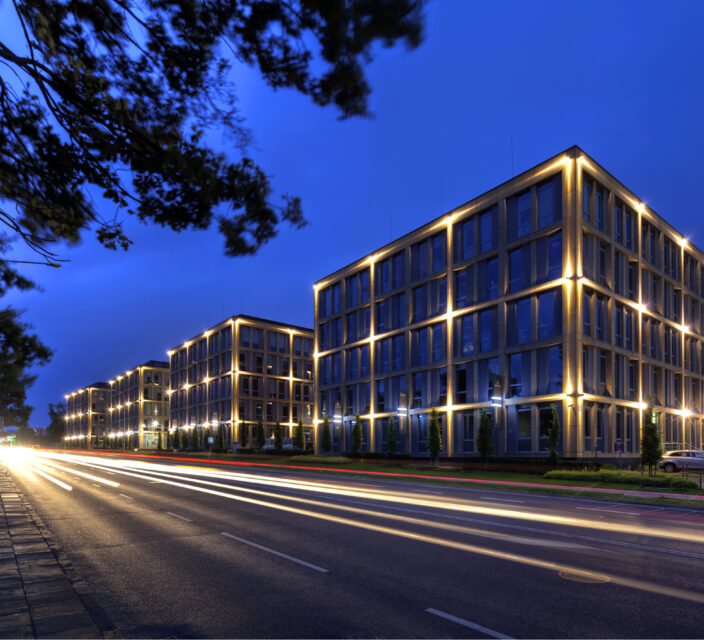Systematic, precise efficiency control and correct operation of the HVAC installation not only affects its failure rate, but also prolong its lifespan.
We encourage you to familiarize yourself with our cooperation with Roche company, on the premises of the Malta Office Park II B investment.
Our cooperation began with dismantling the old refrigeration unit, its reprocessing and replacement with a new CO2 unit, which is less harmful for the environment.
We show the parameters of both units below:
- Previous refrigeration unit: Lenox LCH 452 VKE, refrigerant R407C
- Present refrigeration unit: Qch- 432kW, propane refrigerant R290
The previous refrigeration unit was in proper working condition, however, it wasn’t an eco-friendly solution due to the amount of CO2 emission into the atmosphere.
As for the harmfulness, we will use the carbon dioxide equivalent with regard to the refrigerant:
- R407c refrigerant EqvCO2=1774 kg for previous refrigeration unit, in which one kilogram of the R407c refrigerant corresponds to 1774 kg of CO2 emitted into the atmosphere
- for the new refrigerant ‘ECO’ R290 of propane EqvCO2= 3kg!!!
As you can see the difference is huge.
The new refrigeration unit is a differently constructed device, which for cooling needs less amount of propane than freon. Propane is a homogeneous refrigerant and its thermodynamic parameters are better than those of freons.
The cooperation stipulates that the technical service is carried out twice a year, which deals with the following activities, such as: electrical connections control, correctness of work, measurement of operating parameters, control of the refrigerant condition, cleanliness of the heat exchangers.
Keep in mind that according to REGULATION OF THE EUROPEAN PARLIAMENT AND OF THE COUNCIL (EU) NO 517/2014 of 16 April 2014 on fluorinated greenhouse gases and repealing Regulation (EC) No. 842/2006, leake checks in accordance with paragraph 1 are carried out with the following frequency:
- In terms of devices which contain 5 or more tonnes of CO2 equivalent of fluorinated greenhouse gases, but less than 50 tonnes of CO2 equivalent: at least once every 12 months or at least once every 24 months, if they are equipped with the leak detection system;
- In terms of devices which contain 50 or more tonnes of CO2 equivalent of fluorinated greenhouse gases, but less than 500 tonnes of CO2 equivalent: at least once every six months or at least once every 12 months, if they are equipped with the leak detection system;
- In terms of devices which contain 500 or more tonnes of CO2 equivalent of fluorinated greenhouse gases: at least once every three months or at least once every six months, if they are equipped with the leak detection system.
However, it should be noted that:
- R290 devices are not the subject to CRO entries or the so-called freon act
- R290 devices are not the subject to due mandatory leak testing.
Thanks to the replacement of the refrigeration unit and scheduled, regular technical servicing our Client takes care of the environment as well as of his own CSR.
